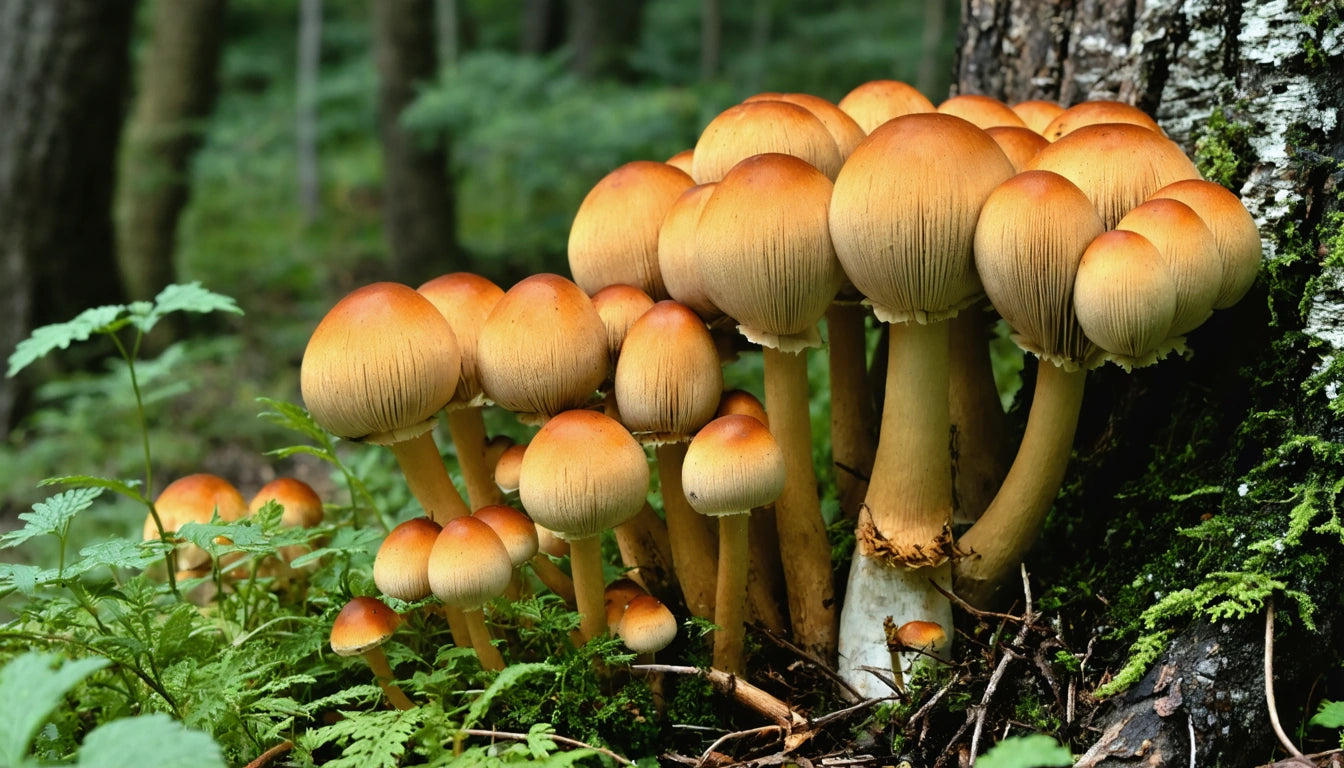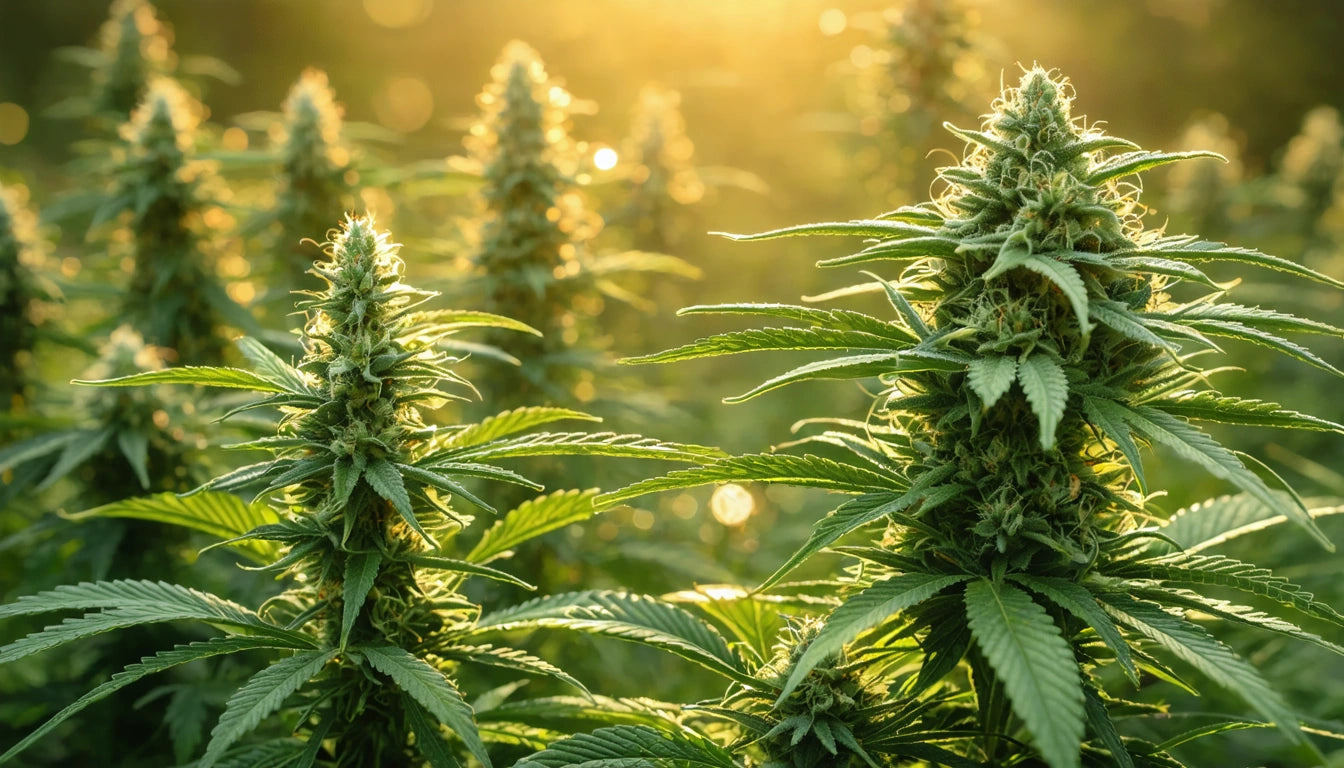Table of Contents
Legal Status of Mushrooms and Edibles in Arizona and Utah
Understanding the legal status of psychedelic mushrooms and cannabis edibles in Arizona and Utah requires navigating complex state regulations that continue to evolve. Both states maintain distinct approaches to these substances, with significant legal differences that affect residents and visitors alike.
Legal Status of Mushrooms in Arizona: Current Laws and Regulations
The question "are mushrooms legal in Arizona" has a straightforward answer: no. Psilocybin mushrooms remain classified as Schedule I controlled substances under Arizona state law, aligning with federal regulations. This classification means that possession, cultivation, distribution, and use of psychedelic mushrooms are illegal and can result in serious legal consequences.
For those wondering "are psychedelic mushrooms legal in Arizona," the penalties for possession include:
- First-time possession can be charged as a Class 4 felony
- Penalties may include up to 3.75 years in prison
- Fines reaching $150,000
- Potential probation periods
Despite nationwide momentum toward psychedelic reform, Arizona has not yet enacted state-level decriminalization measures for psilocybin mushrooms. This stands in contrast to neighboring states like Colorado and Oregon that have implemented varying degrees of decriminalization or regulated access programs, as detailed in this comprehensive state-by-state guide.
Edibles in Arizona: The Legal Landscape
For those asking "are edibles legal in Arizona," the answer is more nuanced. Following the passage of Proposition 207 in November 2020, recreational cannabis became legal for adults 21 and older in Arizona. This legalization extends to cannabis edibles, which can be legally purchased at licensed dispensaries throughout the state.
Key regulations for cannabis edibles in Arizona include:
- Maximum of 10mg THC per serving
- Maximum of 100mg THC per package
- Child-resistant packaging requirements
- Strict labeling guidelines
- Prohibition on packaging that appeals to children
It's important to note that while cannabis edibles are legal, products marketed as "mushroom gummies" containing psilocybin remain illegal. The question "are mushroom gummies legal in Arizona" has the same answer as for whole mushrooms: they are prohibited under state law.
For cannabis businesses working with edible products, proper filling equipment for consistent dosing is essential to meet Arizona's strict regulatory requirements for THC content in each serving.
Enforcement Approaches in Arizona
Arizona law enforcement's approach to mushroom offenses can vary by jurisdiction. Urban areas like Phoenix and Tucson may prioritize resources differently than rural counties. However, commercial distribution operations typically face more aggressive prosecution than cases of personal possession.
For those asking "what drugs are legal in Arizona," the list currently includes:
- Cannabis (recreational and medical)
- Alcohol
- Tobacco and nicotine products
- Prescription medications when properly prescribed
All other controlled substances, including psilocybin mushrooms, MDMA, LSD, and cocaine, remain illegal under Arizona state law.
Mushroom Legality in Utah: State Regulations and Restrictions
For those wondering "are mushrooms legal in Utah" or "are mushrooms illegal in Utah," the answer is clear: psilocybin mushrooms are strictly prohibited. Utah maintains some of the strictest drug laws in the western United States, classifying psilocybin as a Schedule I controlled substance.
Unlike Arizona, Utah has not legalized recreational cannabis, maintaining stricter prohibitions on most psychoactive substances. The state does have a limited medical cannabis program, but it specifically excludes edible products like cookies and brownies, permitting only the following forms:
- Capsules and tablets
- Concentrated oils
- Topicals
- Tinctures
- Gelatinous cubes (a limited edible form)
This means that for those asking "are mushroom gummies legal in Utah," the answer is definitively no. Both psilocybin products and traditional cannabis edibles remain prohibited.
Comparison of Legal Approaches Between Arizona and Utah
The contrast between Arizona and Utah's approaches to psychoactive substances reflects broader regional differences in drug policy. While both states maintain prohibitions on psilocybin mushrooms, their cannabis policies diverge significantly:
- Arizona permits recreational and medical cannabis, including edibles
- Utah allows only limited medical cannabis with restrictions on product forms
- Arizona has implemented expungement provisions for prior cannabis convictions
- Utah maintains stricter penalties for cannabis possession outside its medical program
These differences create a complex legal landscape for residents near the Arizona-Utah border, where crossing state lines with legally purchased Arizona products could result in serious legal consequences in Utah.
For a broader understanding of mushroom legality beyond these two states, this nationwide guide on psychedelic mushroom laws provides valuable context.
Future Legal Developments and Advocacy Efforts in Both States
The legal status of psilocybin mushrooms in both Arizona and Utah may evolve in coming years, influenced by several factors:
- Growing research on therapeutic applications of psilocybin
- Ballot initiatives and grassroots advocacy movements
- Legislative reform efforts at state and federal levels
- Changing public attitudes toward psychedelic substances
In Arizona, advocacy groups have begun organizing to potentially place decriminalization measures on future ballots, following the successful model used for cannabis legalization. Utah's more conservative political landscape presents greater challenges for reform, though medical research initiatives may eventually open pathways for therapeutic use.
For comparison, neighboring states like Colorado have implemented more progressive policies, as detailed in this comprehensive mushroom legality guide.
While both states currently prohibit psilocybin mushrooms, the rapidly evolving legal landscape surrounding psychedelics suggests that these policies may not remain static. Those interested in these issues should stay informed about legislative developments and remember that despite changing attitudes, current laws remain in effect and are actively enforced.











Leave a comment
All comments are moderated before being published.
This site is protected by hCaptcha and the hCaptcha Privacy Policy and Terms of Service apply.